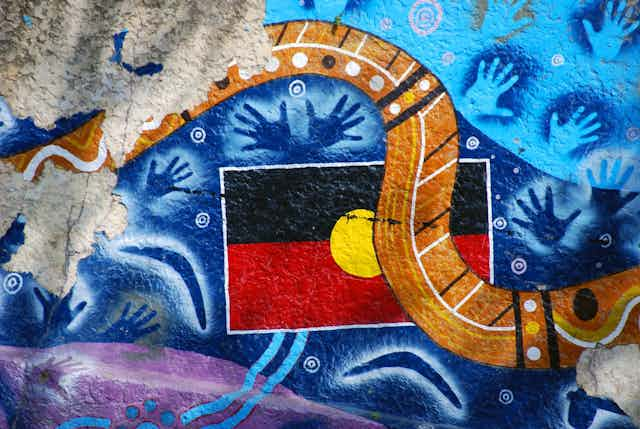Given the well-documented association between racism and Indigenous Australians’ health and well-being, it is important to raise awareness about racism and introduce strategies to eliminate it, where it exists.
But is it too commonly assumed that racism is a major contributor to problems of Indigenous Australia when it is not? Consider the current controversy surrounding the proposals to cease funding some remote Aboriginal communities in Western Australia, with some commentators suggesting the proposals are linked to racism.
Reporting on a survey initiated last year by the non-profit mental health organisation Beyond Blue, the Sydney Morning Herald stated that 20% of non-Indigenous Australians aged 25-44 still think “it’s OK to discriminate” against Indigenous Australians.
While this finding indicates there is room for improvement, it also indicates that up to 80% of those surveyed think it’s not OK – or neither agreed nor disagreed that it was OK – to discriminate against Indigenous Australians.
The Beyond Blue study was conducted online by TNS Social Research. A total of 1,003 participants took part, a sample that was “representative of gender, state/territory and metropolitan/regional locations”.
Beyond Blue is to be applauded for its initiative. But, when assessing the impact of racism on Indigenous Australian’s well-being, we need to identify the positives as well as the negatives.
That’s why it’s worth paying attention to another finding from the same survey which – in the months since it appeared – has received little, if any, coverage. On a scale of 0 (strongly disagree) to 10 (strongly agree) for the statement “I would be happy for Indigenous Australians to be a part of my friendship group” the average response was approximately 8.
And in that same survey, for the statement “I feel anxious or uncomfortable around Indigenous Australians”, the average response was approximately 3.
I do not mean to downplay the seriousness of racism. But these findings seem to go against the widespread belief in some quarters that racism is particularly rife in Australia.
Indigenous academic Professor Gracelyn Smallwood stated in 2012 that Australia is a racist society – but offered little evidence to justify this claim.
Of course some level of racism and prejudice exists here, as in most countries. But to suggest that Australia is therefore an inherently racist society would be like calling Aboriginal people wealthy because some of them are – but we know that the majority are not wealthy.
Like many other Indigenous Australians and members of minority groups, I have experienced racism first-hand, and I have been blessed to have great role models in my family that have enabled me to rise above it and move forward.
There is much goodwill in Australia towards Indigenous people. Acknowledging that goodwill, combined with the message that “Racism is not welcome in this country”, will go a long way towards making this a better country for all.

I believe there are several reasons why some reflexively call Australia a racist country.
Focusing on racism diverts attention away from serious problems that affect Aboriginal people – unsafe living environments, poor health, unhealthy life choices, etc. These are problems which Indigenous Australians can, and must, play an active role in addressing – but to suggest this is to sometimes be accused of “blaming the victim”. Blaming racism is far easier.
We should question whether the racism reportedly experienced is overstated. Because sociological surveys tend to rely on self-report responses, researchers typically can report on only what survey participants tell them. Often it is difficult to verify responses objectively, and with self-reported data, there is always a degree of subjectivity – and room for inflation.
Consider the summary of a 2012 survey, conducted by VicHealth, of self-reported experiences of racism for Indigenous people, which reported that 97% of those surveyed had experienced racism in the previous 12 months. Such wording could be interpreted as stating that actual verified experiences of racism took place.
Social scientists have documented the tendency to embellish events of the past when recalling them, in ways that make people feel special. In their excellent 2008 book Mistakes Were Made (But Not by Me), Carol Tavris and Elliot Aronson state:
memories are often pruned and shaped by an ego-enhancing bias that blurs the edges of past events, softens culpability, and distorts what really happened.
But impaired memory recall is a two-edged sword. Potential response biases also apply to the encouraging findings discussed at the beginning of this article. Just as Indigenous Australians can overstate their past experiences of racism, so too can non-Indigenous Australians overestimate their goodwill when thinking about Indigenous Australians or other minority groups.
While the racism of the British invaders was certainly catastrophic for Indigenous Australia, surely it is not this historic event that sustains problems today. Often when trying to extinguish a fire, it is more important to know what sustains it rather than what started it.
While acknowledging the existence of racism today, the existence of many successful Indigenous Australians casts serious doubt on whether racism is the main source of oxygen that maintains the fire of Indigenous suffering and disadvantage.
Let’s unite to rid Australia of racism, but let’s not give it more credit than it warrants when addressing the needs of Indigenous Australians.

